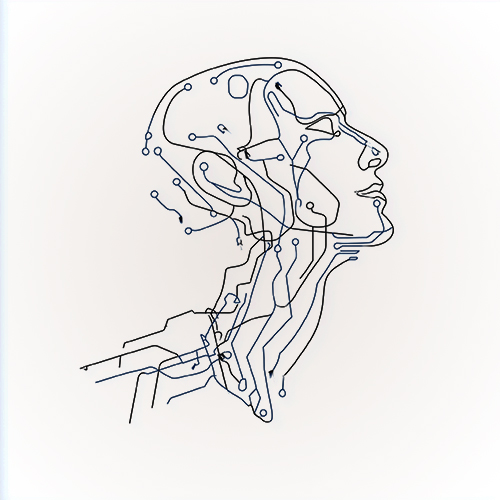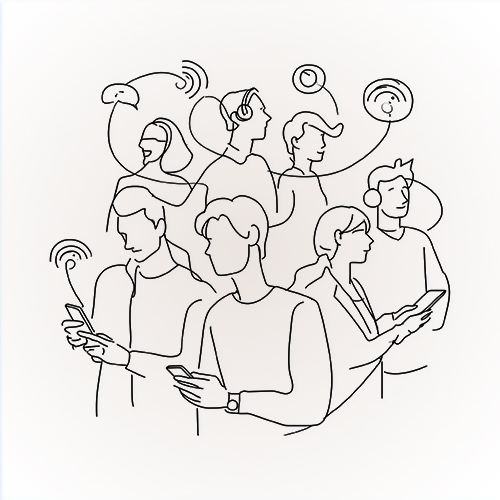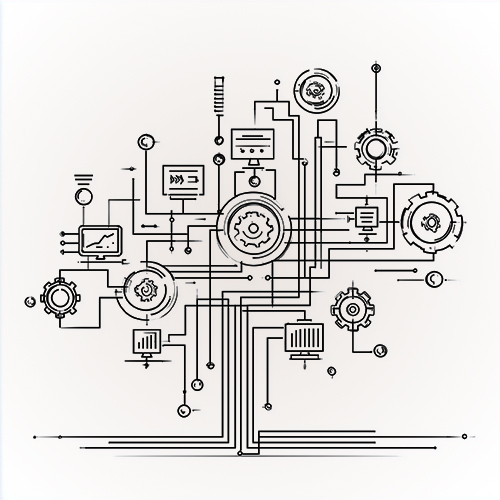Kuuntele case
Three years of the AI revolution: how AI has changed the world and business?

At the end of November, it will be three years since the generative AI application ChatGPT exploded into public awareness and triggered a global AI transformation. Over these three years, we’ve seen progress and missteps. The most significant changes and benefits can be summarized under five key themes.
Read the summary (AI-generated, human-reviewed)
-
With the rise of ChatGPT, artificial intelligence became accessible to everyone. It is now evolving into a foundational technology that integrates into all operations.
-
The key benefits and transformations brought by AI over the past three years can be summarized in five themes: A leap in productivity and a redefinition of work, democratization of innovation, a shift from reactive to proactive approaches, intelligent automation and process redesign and increasing autonomy of AI agents.
Initially, AI was seen merely as a tool for automating individual tasks. However, over the past three years, a more profound transformation has occurred: AI is becoming a fundamental, general-purpose technology that integrates into all operations – much like electricity or the internet once did.
The most significant changes and benefits brought by AI can be summarized under five headings:
1. Productivity leap and redefinition of work
The most immediate and significant impact has been seen in the productivity of expert work. AI hasn’t replaced people; instead, it has become an indispensable work partner that enhances, accelerates, and improves the quality of work across various fields.
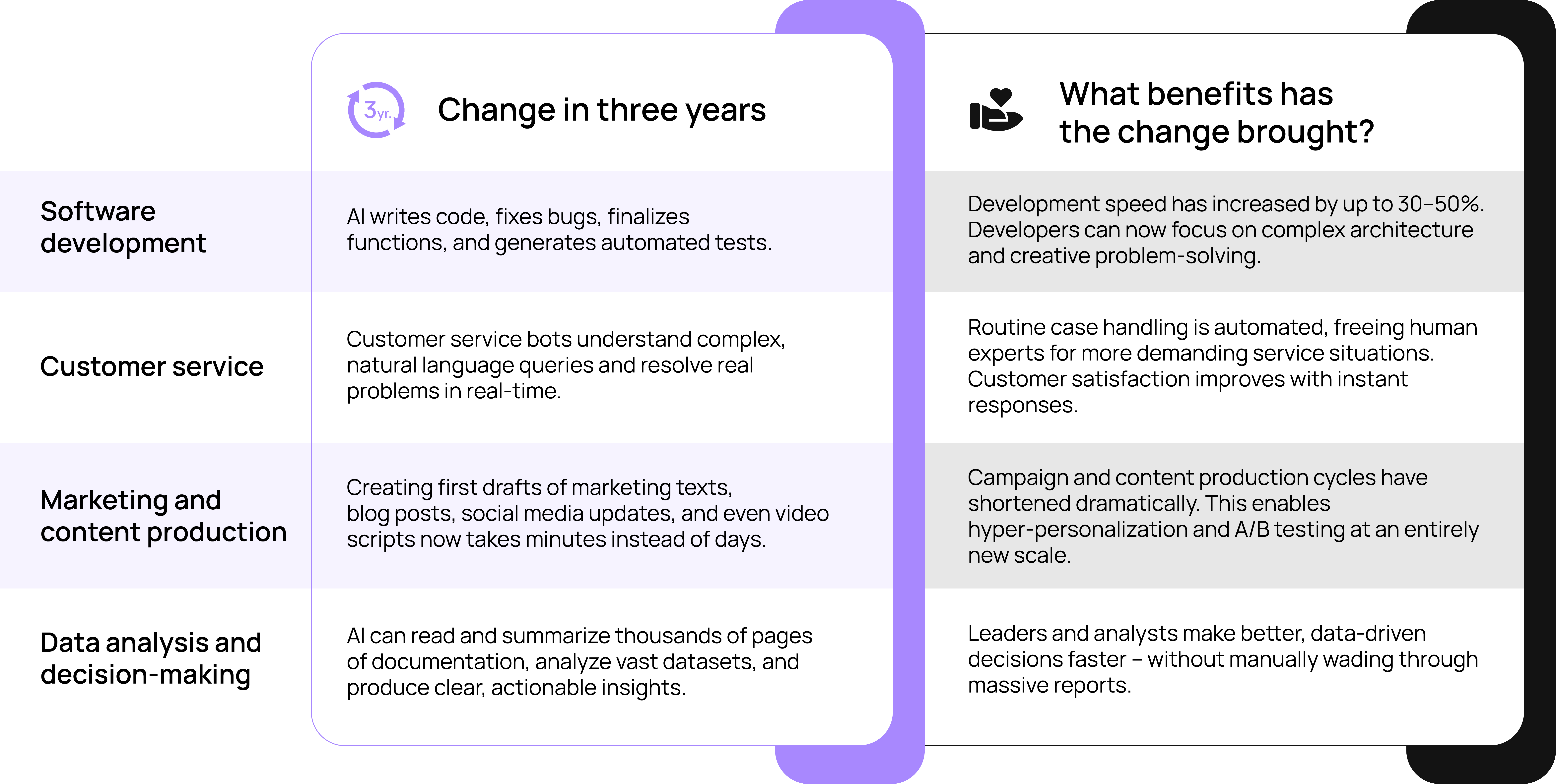
2. Democratization of innovation
One of the most significant changes is the lowering of the threshold for innovation. Previously, creating complex digital services required large teams and capital. Now, with generative AI, even small teams – or individuals – can experiment and build functional applications and services in a fraction of the time. This has sparked a new wave of startups and enabled faster internal innovation, as well as a culture of experimentation, in large companies.
3. Shift from problem-solving to anticipation
AI enables a shift from reactive to proactive operations. For example, in industry, predictive maintenance has reached a new level as AI analyzes sensor data and anticipates equipment failures before they occur. (For example, you can just read how Fintraffic uses machine learning in the predictive maintenance of automatic traffic measurement points.)
Similarly, in business, AI can analyze market data and customer behavior to identify emerging trends and risks, giving companies time to act proactively.
4. Intelligent automation and process redesign
Development has leaped from traditional robotic process automation (RPA) to intelligent automation. It’s no longer just about automating individual, repetitive clicks – entire business processes are being redesigned. AI can orchestrate complex workflows, make independent decisions, and dynamically handle exceptions.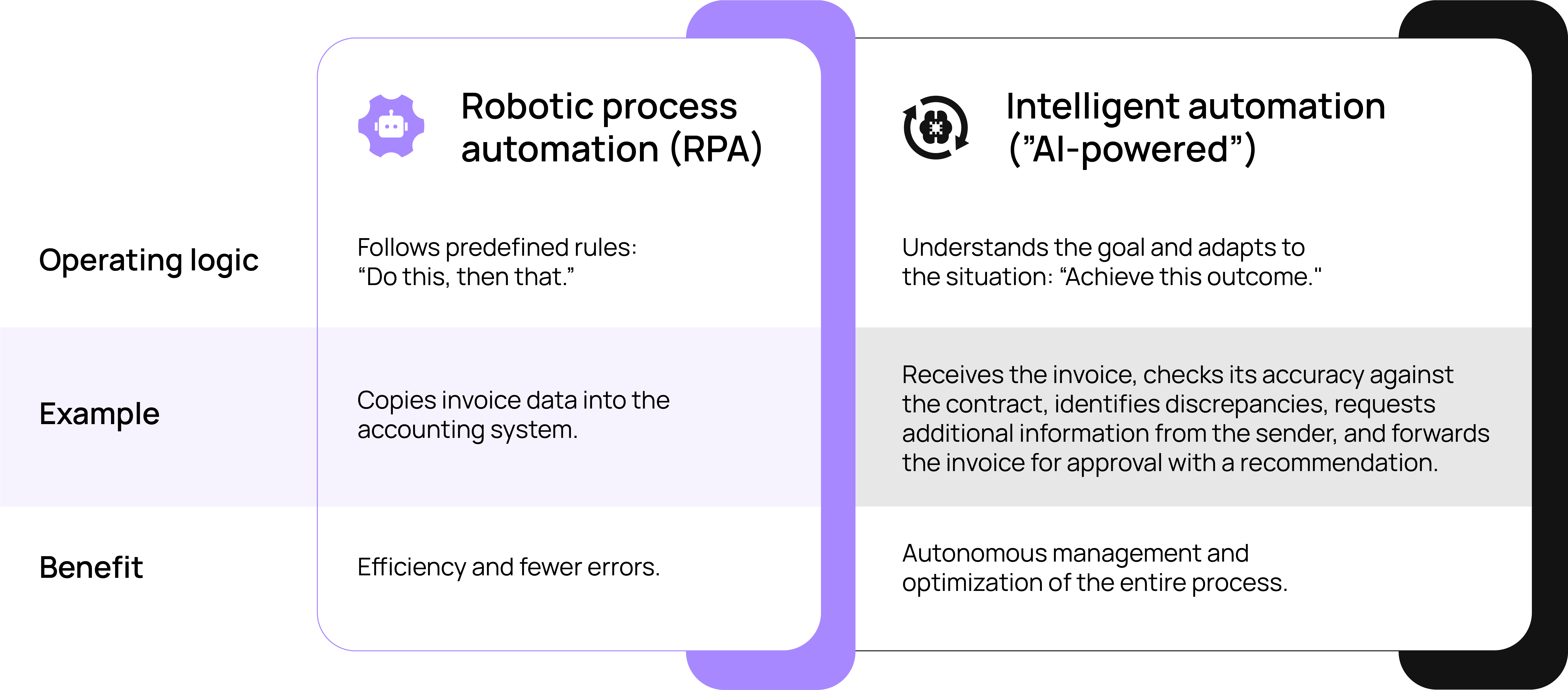
5. AI agents make AI increasingly autonomous
The latest and most revolutionary step is the development of AI agents. These are autonomous systems that not only answer questions but can independently plan and execute multi-step tasks to achieve a given goal. They can use various tools, browse the internet, access applications, and communicate with other systems.This shifts the human role from executor to supervisor and strategist (“human-on-the-loop”). The agent is no longer just a tool but a team member.
Example: A sales assistant agent could be tasked with: “Find 10 new potential customer leads in the Nordic manufacturing industry.” The agent would independently proceed as follows:
1. Definition: Identifies keywords and criteria (manufacturing industry, revenue range, location).
2. Information Retrieval: Browses company databases, LinkedIn, and news sources to find suitable companies.
3. Analysis: Identifies the right decision-makers and their contact information.
4. Action: Drafts personalized emails for each lead.
5. Reporting: Presents findings and sent messages to its human colleague for follow-up.
How have these benefits been achieved – and how can they be accessed? In many cases, success has required learning through trial and error. AI Do’s and Don’ts – click here!
Explore Digia’s AI customer implementations here.
Keep your eyes on the horizon
Technology is transforming the world faster than ever. Our newsletter Digia Horizon is your monthly guide to the latest trends, innovations, and insights on how technology is shaping smarter business.

